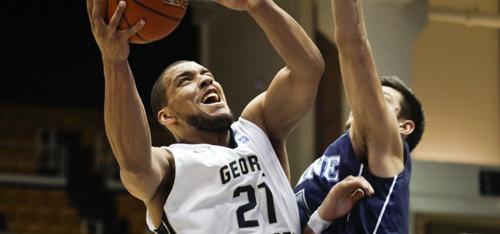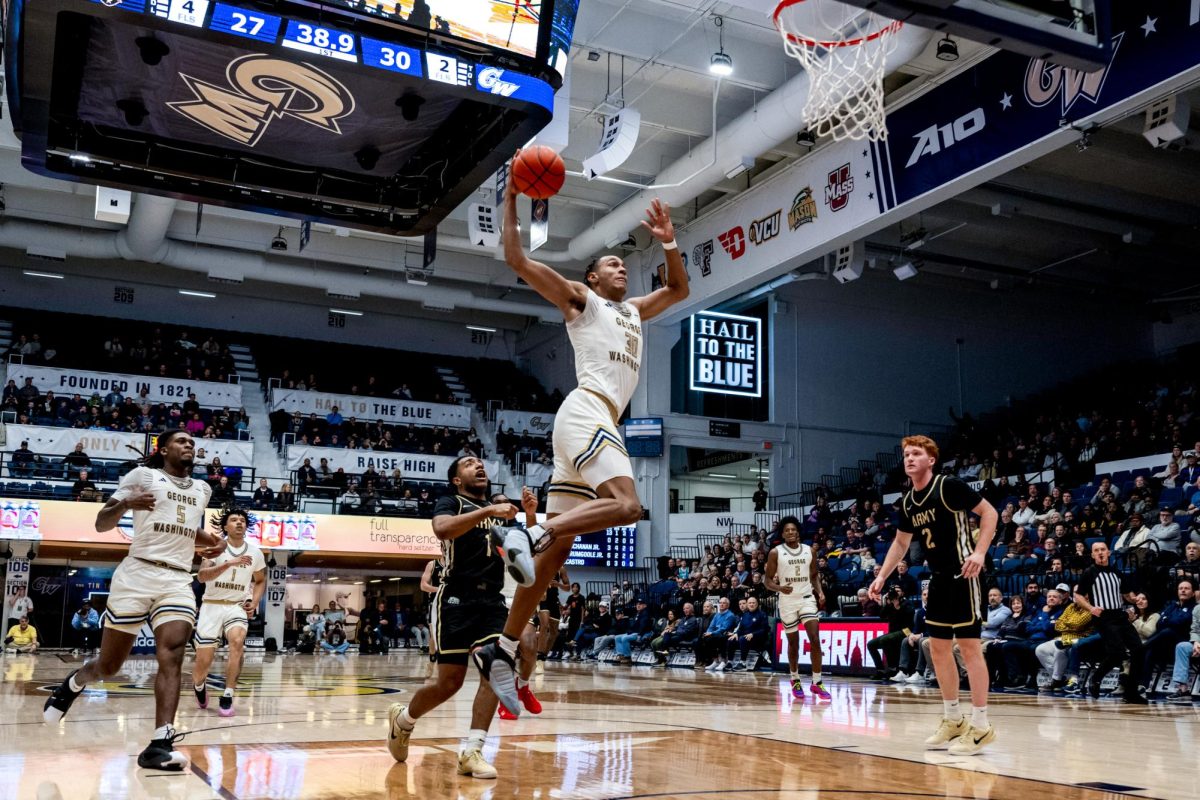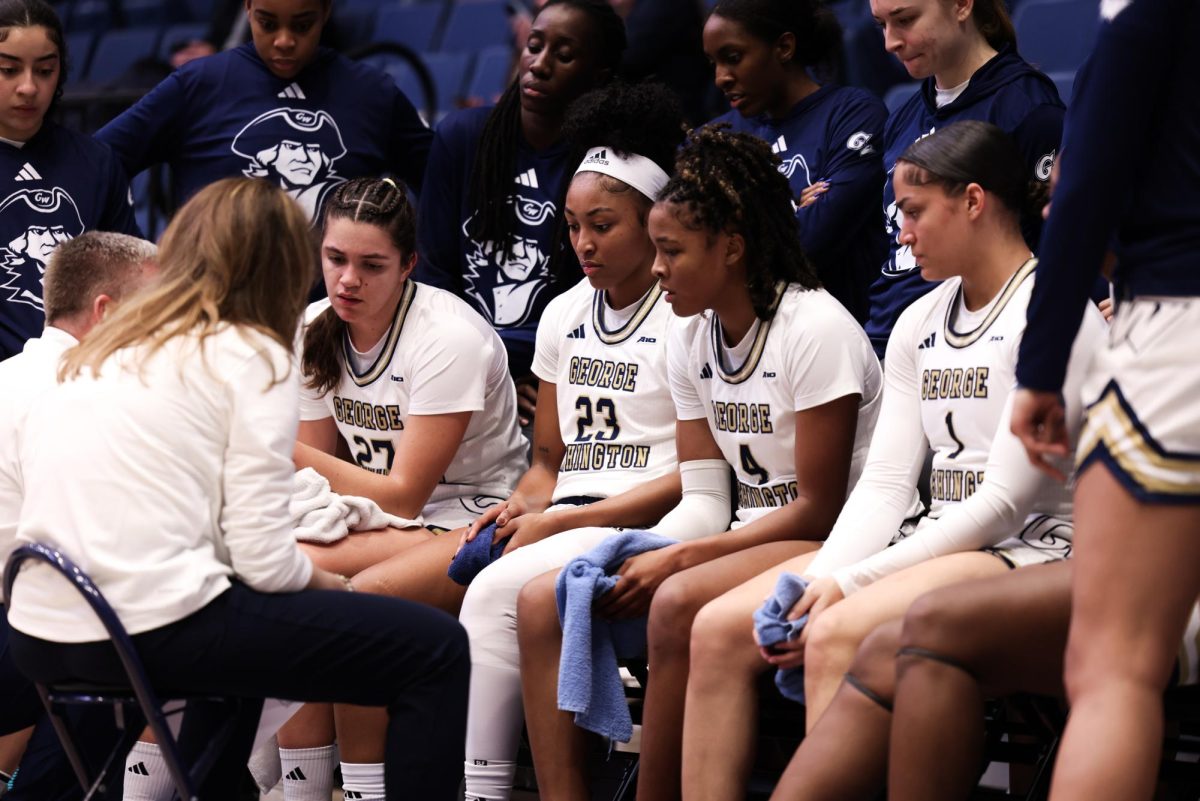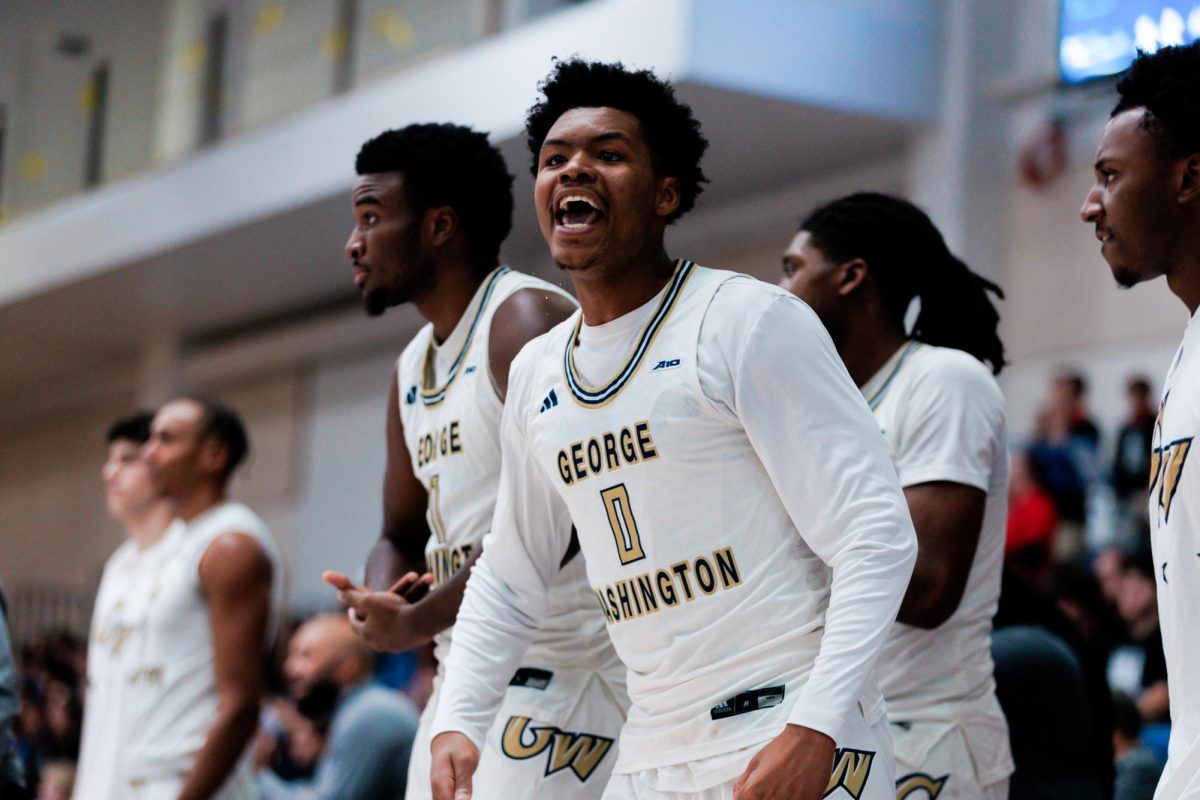Up by 20 points with 10 minutes to play, sophomore guard Kethan Savage stuck tight with his man on defense, forcing him down the baseline where he would have nowhere to go.

Then the referee blew the whistle.
Savage immediately walked away from the play, holding out his arms and sticking out his tongue, confused by the call, but not fighting it – almost like it was expected.
—
When the NCAA came out with its rule changes this summer for the upcoming season, a familiar theme was apparent: protection of players.
According to the NCAA’s website, the following fouls should now be called on a consistent basis:
– When a defensive player keeps a hand or forearm on an opponent;
– When a defensive player puts two hands on an opponent;
– When a defensive players continually jabs by extending his arm(s) and placing a hand or forearm on the opponent;
– When a players uses an arm bar to impede the progress of an opponent.
Following the likes of the NFL and NCAA Football – who have both introduced new rules of their own in the past year making life harder for defensive players –the NCAA hopes to “reduce physical play and create offensive flow.”
Coming off its lowest-scoring season since 1981-82, college basketball officials are looking for more open lay-ups, more points and more fans.
It certainly has for the Colonials, who scored 108 points in Tuesday’s win over Maine, the most by GW since 2005. As a team, the Colonials have committed just 40 fouls over their first two games, getting to the bonus quicker than their opponents who have tallied 48 fouls in that time.
So far this year, though, it’s also created frustrated coaches and unbearably slow games.
In a preseason game earlier this season between Louisville and Kentucky Wesleyan, 64 fouls were called and five Panthers fouled out. Similarly, in Morehead State’s matchup last Saturday against Saint Catharine, there were 66 total fouls called.
—
The foul was Savage’s third of the game and one that falls right under the NCAA’s new list of calls. He would finish the night with four fouls.
Senior forward Isaiah Armwood was also affected by the rule change. Armwood picked up two early fouls in the first half, something not necessarily rare in college basketball, but with the chance of quickly grabbing a soft third foul, it meant out of the game.
Armwood would play just 11 minutes in the first half and 22 for the entire game.
Despite the fear of foul trouble, head coach Mike Lonergan’s team have found a way to be successful on offense and find more positives than negatives in the rule change.
“I’m all for the new rules, I really am. I like to see the hand checks called,” said Lonergan, who later added, “I think it will really help the game. Scoring will go up.”
But still, the rule change has become something that looms over Lonergan’s head and dictates how he attacks the game.
“That’s why we’re playing a lot more 1-3-1 than I would like because usually you don’t foul out of that zone,” he said. “But we’re definitely thinking about it a lot and we’re not pressing like we normally would do because we don’t want to put the other team in the bonus.”
Additionally, GW’s lack of depth and poor free throw shooting history could create problems if more fouls are called.
Lonergan said the key to continued success will be staying out of foul trouble – something that may prove difficult for aggressive players like guards Joe McDonald and Maurice Creek.
“I think it’ll make for a smoother looking game and better for the fans once everyone adjusts to the rules,” Lonergan added. “I just hope the referees call it and I hope they call it against every team we play.”







